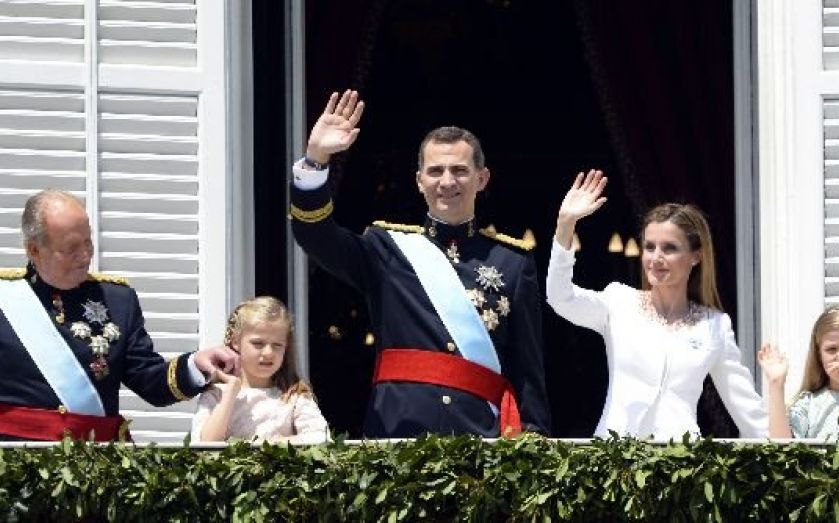| Updated:
Spain’s new king Felipe VI takes throne and pledges to stay “close to the citizens”

Spain's new king Felipe VI has been sworn in as the country's new head of state, calling for "a new Spain" and vowing to uphold the constitution.
In a simple ceremony conducted in front of family and national MPs that lacked the prestige and pageantry of equivalent handover events in other monarchies, 46 year-old Felipe spoke of the challenges that Spain faces as the country looks to sustain economic growth after exiting a two-year long recession in October 2013.
Last month ratings agency Standard & Poor’s upgraded Spain from BBB-/A-3 to BBB/A-2 on the basis of improved GDP growth projections for the next two years. This corresponds to the agency's positive view of structural reforms introduced by the Mediterranean country.
However, the Spanish economy still faces many challenges. Even after nine months of economic growth, a quarter of the working age employment remain unemployed, matched in the EU only by Greece – highlighting the challenges that the country's government faces.
In his speech, King Felipe VI spoke of "reviving the monarchy for a new age", following a number of high-profile scandals during the reign of his father Juan Carlos that have seen trust in the institution plummet. Back in January, a poll showed more than two in five wanted Spain to be a republic.
While the role of the monarch in Spain is largely symbolic due to his limited powers, he can urge political leaders to act. Commentators believe that the new king could use this to encourage political dialogue over one of the most pressing political issues, that of Catalan independence.
The local government in the more well-off region of north-east Spain has called for an independence referendum for November this year.

King Felipe VI spoke of "reviving the monarchy for a new age"